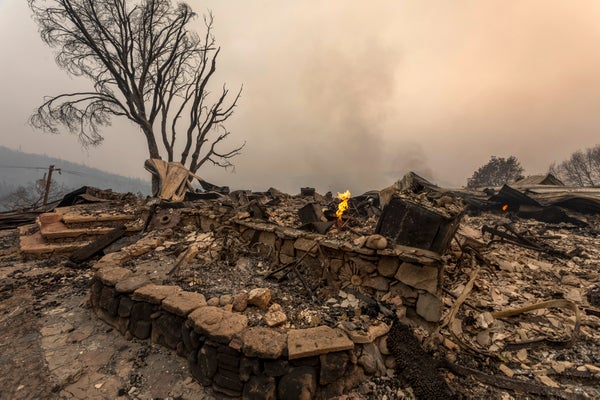For this installment of our preelection podcast series I spoke to Andrea Thompson. She’s a Scientific American associate editor covering issues in sustainability and the environment with an emphasis on climate.
“President Trump has called into question a lot of well-established climate science. He has denigrated the federal government’s own National Climate Assessment, as well as the work put out every few years by the Intergovernmental Panel on Climate Change, which are the two documents that really bring together and summarize and synthesize all of the climate research that’s being done. Whereas former vice president Biden has made it clear that he understands and respects climate science and that he thinks that climate change is a really existential threat.
“In specifics, so one of the key things that President Trump did was: last year he put in a request to remove the United States from the Paris climate agreement, which is the global agreement for countries to gradually reduce their greenhouse gas emissions. If Biden wins, he has said he will immediately bring us back into that agreement.
On supporting science journalism
If you're enjoying this article, consider supporting our award-winning journalism by subscribing. By purchasing a subscription you are helping to ensure the future of impactful stories about the discoveries and ideas shaping our world today.
“The National Climate Assessment that I alluded to earlier that comes out every four years, it’s mandated by Congress. There’s multiple federal agencies that put that together. And the last one that came out came out during the Trump administration. And it was very different from the one that came out during the Obama administration. The Trump administration put it out very quietly to try and minimize attention to it. So now we’re at the beginning of the process for the next one. But I think it would be pretty clear that a Biden administration would reprioritize that report. Whereas the Trump administration could be expected to affect what science gets included in it and what the conclusions are and how those were communicated. And the reason that’s such an important document is because it sort of synthesizes all of this climate information about the changes we have observed and expect in the future across the whole United States. And that’s really valuable information for state and local governments to have as they tried to figure out how to respond to climate threats today and also plan for them in the future. Because that’s not information you can necessarily get on your own if you’re a city government. So that’s kind of the resource that cities and states can use, so it’s a really critically important document.”
What about the scientists themselves and how they have been either supported or interfered with?
“Yeah, that’s one that varies, I think, from agency to agency, I think, in part, because of where the Trump administration put its energies. So agencies like NASA, I think, have seen probably a little less interference than others—versus the Environmental Protection Agency, which has been a main focus of the Trump administration to date and where they have done a lot of rollbacks and overruling of agency scientists in terms of rulemaking. And they’ve also changed some of the rulemaking to limit what science can actually be included in some of those regulations and rule processes. I think NOAA, the National Oceanic and Atmospheric Administration, has probably been a little bit in the middle. They’re still doing a lot of their traditional climate work. You know, they do a lot of work with satellites, they’re the main entity that does our record keeping on weather and climate. And so they’ve been continuing that. But there have been some appointments to that agency very recently that has scientists and environmentalists concerned because the people appointed have, in the past, made statements showing that they don’t accept climate science. And so there’s some concern if there’s a second Trump administration, that that could undercut some of the science and scientists at NOAA.”
—Steve Mirsky
[The above text is a transcript of this podcast.]

